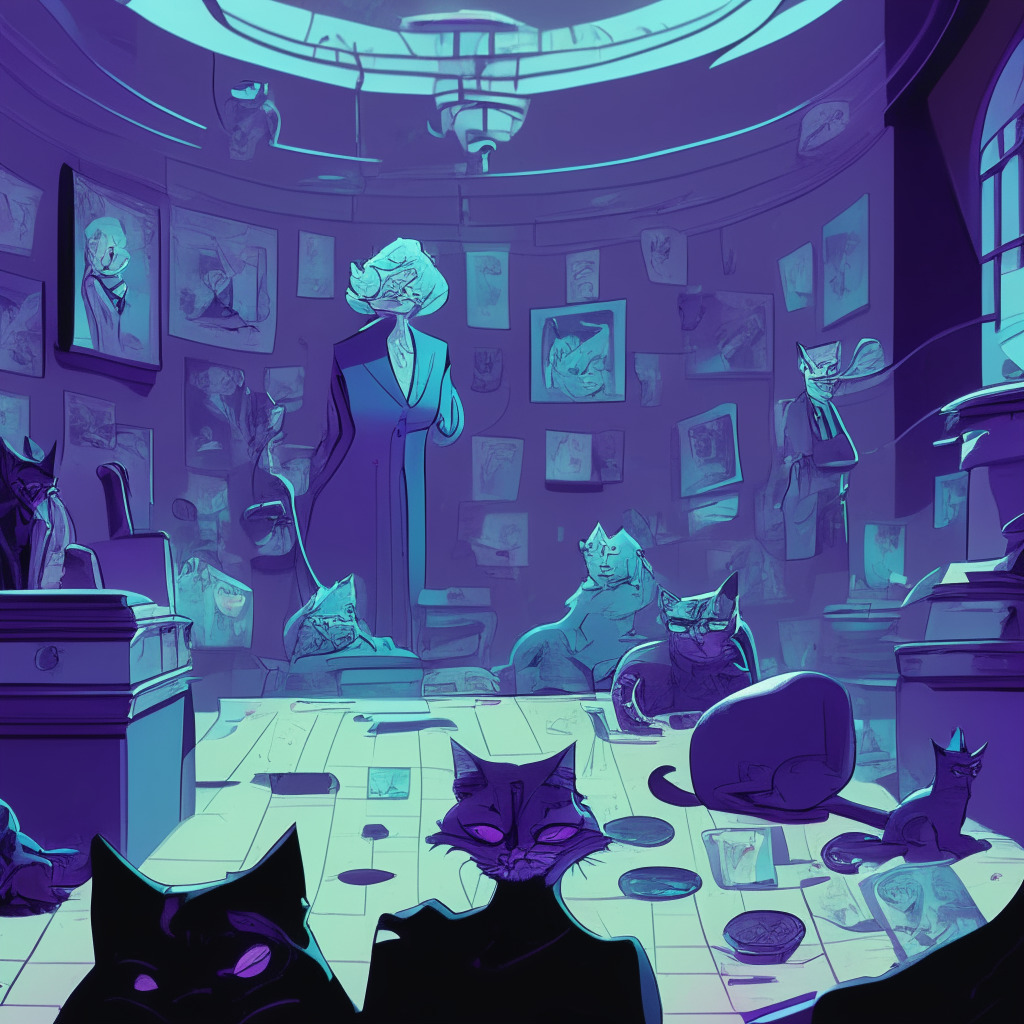The company known as Stoner Cats 2 LLC (SC2), responsible for the creation of the animated series, Stoner Cats, has faced charges from the United States Securities and Exchange Commission (SEC). The charges were for conducting an unregistered offering of crypto asset securities in form of nonfungible tokens (NFTs). According to the SEC, SC2 successfully sold over 10,000 NFTs for approximately $800 each, a sale that was completed within 35 minutes on July 27, 2021. The proceeds from the sale were used to fund the animated series which featured an elderly woman and her cats consuming cannabis.
The Stoner Cats project was launched by popular actress Mila Kunis in collaboration with established NFT creators. The series’ cast comprised of numerous Hollywood A-listers such as Ashton Kutcher, Chris Rock, Dax Shepard, Gary Vaynerchuk, Jane Fonda, Michael Buble, and Seth MacFarlane.
The SEC alleged that SC2 marketed a potential secondary market for the NFTs and suggested that the prominence of the creators and actors would lead to an increase in the NFT’s value. The agreement also included the stipulation that SC2 received a 2.5% royalty on all secondary sales. The SEC reported that there were at least 10,000 secondary sales of the NFTs, amounting to more than $20 million.
To settle these charges, SC2 obeyed a cease-and-desist order and agreed to pay a civil penalty of $1 million. The company will also create a Fair Fund to reimburse any “injured investors.” As part of the ruling, SC2 will destroy all NFTs within its control or possession. It’s noteworthy to mention that the company neither admitted to nor denied the charges.
The crux of the problem appears to lie in the thin line between exploiting celebrity influence for marketing an unregistered securities offering and using it for a legitimate investment opportunity. With the ever-growing popularity of NFTs, a clear and robust regulatory framework is a necessity. This incident underlines the importance of operating within the confines of the law, even in the cutting-edge world of blockchain and cryptocurrencies.
Source: Cointelegraph




